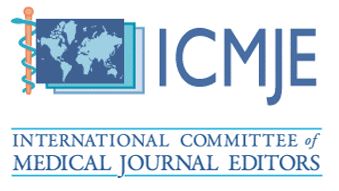Public Assistance?

Our Editors

Dr Hazim Abdul-Rahman
Associate Editor
Sarcouncil Journal of Applied Sciences

Entessar Al Jbawi
Associate Editor
Sarcouncil Journal of Multidisciplinary

Rishabh Rajesh Shanbhag
Associate Editor
Sarcouncil Journal of Engineering and Computer Sciences

Dr Md. Rezowan ur Rahman
Associate Editor
Sarcouncil Journal of Biomedical Sciences

Dr Ifeoma Christy
Associate Editor
Sarcouncil Journal of Entrepreneurship And Business Management
Indexes






Know Who We Are
Scientific Academic Research Council and Publisher (SARC Publisher) is a globally recognized, peer-reviewed publishing platform dedicated to disseminating groundbreaking research. We specialize in publishing research articles, review papers, and case reports, with a strong emphasis on the latest scientific advancements. At SARC Publisher, we strive to illuminate significant research contributions from scholars worldwide, fostering an environment of knowledge exchange and innovation. Our mission is to provide researchers with a prestigious platform that amplifies their work and ensures the recognition they rightfully deserve within the global scientific community.
Announcement
Call for Papers
SARC Publisher invites researchers and scholars to submit Research Articles (RA), Review Papers (Rev), and Short Communications for publication in our esteemed journals spanning all academic disciplines. We welcome submissions for our forthcoming issues. Authors can submit their manuscripts via email at submit.sarcouncil@gmail.com.
Latest Articles
Severity of Hand Eczema and Impact Multidimensional Assessment of the Quality of Life
Examining Students' Mathematical Mastery through Localized Math Tutorials (LMT) On Integer Operations
Advances in Neurosurgical Techniques for Resection of Glioblastoma Multiforme: A Comprehensive Study
Famous Texts in Islamic Theology and Their Characteristics
Ensuring Economic and Financial Security of Companies Through the Use of the Open Data Portal
The Role of Abu Bakr Kalobodi in the Science of Sufism
Manufacturing of High-Tech Low Shelf Live Products
Development of Kalam (Islamic Theology) Science in the 9th-10th Centuries in Transoxiana
The Reflection of Hanafi Principles in the Work “Bahra-L-Favoid”
The Physiological Changes, Diagnostic Methods, and Treatment Considerations for Managing Thyrotoxicosis in Pregnant Women
Our Journals
Certificate



Testimonials
"SARC's commitment to open access publishing has significantly broadened the reach and impact of our research findings."
 Dr. Alice Johnson, Professor of Biology
Dr. Alice Johnson, Professor of Biology
"The editorial support provided by SARC was exceptional. Their guidance and feedback were instrumental in refining our manuscript for publication."
 Dr. David Lee, Research Scientist
Dr. David Lee, Research Scientist
"SARC's efficient online submission system and user-friendly platform made the publishing process remarkably smooth and straightforward."
 Dr. Maria Garcia, Postdoctoral Fellow
Dr. Maria Garcia, Postdoctoral Fellow
"We were impressed by the rapid publication turnaround time and the high production quality of our published article."
 Prof. Michael Chen, Department of Chemistry
Prof. Michael Chen, Department of Chemistry
"SARC's dedication to ethical publishing practices and their commitment to disseminating high-quality research are commendable."
 Dr. Sarah Wilson, Research Associate
Dr. Sarah Wilson, Research Associate

